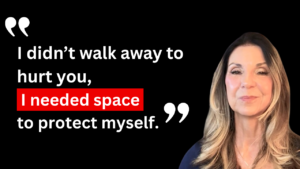Estrangement, the act of being deliberately and continuously disconnected from someone close, is a multifaceted phenomenon with significant implications for individuals and families. In this exploration, we delve into recent research findings and real-life perspectives to illuminate the challenging question: How long can one be estranged?
- Varied Duration: Studies indicate that estrangement can span a broad spectrum of timeframes, from brief episodes lasting weeks to prolonged separations endured for years. This variability underscores the diverse experiences individuals and families navigate during periods of estrangement.
- Common Triggers: Research suggests that unresolved conflicts, communication breakdowns, and values differences are common triggers for estrangement. These triggers can significantly influence the duration of separation, highlighting the importance of addressing underlying issues to facilitate reconciliation.
- Impact on Mental Health: Long-term estrangement has been linked to adverse mental health outcomes, including heightened levels of stress, anxiety, and depression. Moreover, the duration of estrangement can exacerbate these effects, emphasizing the critical need to address and resolve familial conflicts for the well-being of all involved parties.
- Role of Communication: Effective communication is pivotal in determining the duration of estrangement. Lack of communication or ineffective communication strategies can prolong the estrangement period, hindering efforts at reconciliation and perpetuating feelings of disconnection.
- Reconciliation Dynamics: Reconciliation dynamics are complex and multifaceted, influenced by factors such as willingness to forgive, empathy, and mutual understanding. These factors play crucial roles in shaping the duration of estrangement, as they directly impact individuals’ readiness and ability to reconcile.
- Family Structure Matters: The structure of the family and the presence of a support system significantly influence the duration of estrangement. Strong familial support can facilitate reconciliation by providing a nurturing environment for open communication and conflict resolution. Conversely, the absence of support may prolong the separation as individuals struggle to navigate estrangement without adequate support networks.
Generally, recent research findings underscore the nuanced nature of estrangement and highlight the importance of addressing underlying conflicts, fostering effective communication, and cultivating supportive family dynamics to facilitate reconciliation and mitigate the adverse effects of estrangement on mental health and well-being.
Real-life perspectives on estrangement reveal a spectrum of experiences:
- Short-Term Estrangements: In some cases, individuals may encounter short-term estrangements triggered by specific incidents or events. These episodes of estrangement are often temporary and can be resolved with time and effective communication. For example, a disagreement over a family matter or a misunderstanding may lead to a brief period of estrangement, but with open dialogue and mutual understanding, the relationship can be restored relatively quickly.
- Medium-Term Estrangements: Other individuals may find themselves in medium-term estrangements that endure more prolonged periods, typically lasting for a year or more. These medium-term estrangements often involve navigating complex family dynamics and unresolved issues contributing to the prolonged separation. In such cases, individuals may struggle to address underlying conflicts or find common ground, leading to a prolonged period of estrangement as they work through these challenges.
- Long-Term Estrangements: There are instances of long-term estrangements that extend for several years or even decades. These prolonged separations often stem from deep-seated conflicts, unresolved issues, or significant personal transformations within the family dynamic. In long-term estrangements, individuals may have experienced repeated cycles of conflict or have undergone significant life changes that have irreversibly altered their relationships with family members. Reconciliation in such cases may be particularly challenging, requiring extensive efforts and interventions to bridge the gap and rebuild trust.
Overall, real-life perspectives on estrangement illustrate individuals’ diverse experiences, ranging from short-term conflicts to long-term separations. Understanding the underlying reasons for estrangement and the dynamics at play can help individuals navigate these challenges and work towards reconciliation and healing, regardless of the duration of the estrangement.
Factors influencing the duration of estrangement encompass a range of dynamics and coping strategies:
- Nature of the Conflict: The depth and intensity of conflicts significantly determine the duration of estrangement. Profound issues, such as betrayal, abuse, or longstanding unresolved grievances, often lead to more extended periods of separation. These deep-seated conflicts may require extensive efforts and interventions to address and resolve, prolonging the duration and question of How Long Can You Be Estranged?
- Personal Growth: Individuals undergoing personal growth journeys may experience prolonged estrangement as they reassess their relationships and priorities. During periods of personal growth, individuals may undergo significant internal transformations that impact their perspectives on relationships and familial dynamics. This process of self-discovery and introspection can contribute to a longer duration of estrangement as individuals navigate their evolving sense of self and relationship boundaries.
- External Support: Seeking professional help and external support can facilitate resolution and reduce the duration of estrangement by addressing underlying issues. Family counseling, individual therapy, and support groups provide individuals with the tools and resources to navigate familial conflicts and foster reconciliation. Professional interventions offer guidance and support in addressing underlying issues, facilitating productive communication, and rebuilding trust, thereby shortening the duration of estrangement.
Coping Strategies:
- Therapeutic Interventions: Family counseling and individual therapy are crucial in positively impacting the duration of estrangement. Therapeutic interventions allow individuals to navigate familial dynamics and work toward resolution by addressing underlying conflicts and fostering reconciliation. Through guided interventions and therapeutic techniques, individuals can explore their emotions, communicate effectively, and develop strategies for repairing and rebuilding relationships, thereby shortening the duration of estrangement.
- Communication Skills Training: Improving communication skills is essential in facilitating productive conversations and potentially reducing the duration of estrangement. Communication breakdowns often contribute to prolonged periods of estrangement as individuals struggle to express their emotions, needs, and concerns effectively. Communication skills training equips individuals with the tools and techniques to engage in open, honest, and empathetic communication, fostering understanding and resolution in familial relationships.
- Individual Resilience: Building resilience through self-care practices and emotional regulation can contribute to a shorter duration of estrangement. Individuals who prioritize self-care, engage in healthy coping mechanisms, and practice emotional regulation are better equipped to navigate the challenges of estrangement. By cultivating resilience, individuals can effectively manage stress, process emotions, and maintain a sense of well-being during periods of estrangement, ultimately shortening the duration of separation.
Navigating Long-Term Estrangement:
- Self-Reflection: Self-reflection allows individuals to understand their emotions and motivations, fostering personal growth and potential paths forward. During periods of long-term estrangement, self-reflection enables individuals to explore their feelings, identify underlying triggers, and gain insight into their relational patterns and dynamics. By self-reflection, individuals can clarify their values, priorities, and boundaries, paving the way for personal growth and potential reconciliation. Moving forward is important.
- Mutual Understanding: Rebuilding relationships requires mutual understanding and empathy, acknowledging the perspectives of all parties involved. In long-term estrangements, fostering mutual understanding and empathy is essential in bridging the gap and rebuilding trust. By accepting each other’s perspectives, validating emotions, and demonstrating empathy, individuals can lay the foundation for meaningful dialogue and reconciliation, thereby navigating the challenges of long-term estrangement more effectively.
Conclusion
In conclusion, when navigating How Long Can You Be Estranged? it’s essential to recognize that the duration of estrangement is not set in stone and can fluctuate based on a multitude of factors. By understanding the underlying causes of estrangement, such as the nature of conflicts, individual growth journeys, and the availability of external support, individuals can navigate their way towards healing and potential reconciliation.
Incorporating effective coping strategies, such as therapeutic interventions, communication skills training, and building resilience, can significantly impact the duration of estrangement and pave the way for constructive dialogue and resolution. Furthermore, considering both research findings and real-life perspectives can provide valuable insights and guidance for individuals navigating the complexities of estrangement.
As you reflect on your own experiences or share your insights in the comments, remember that your story has the power to resonate with others who may be facing similar challenges. Sharing your journey and seeking support from others who can relate can be instrumental in finding solace and understanding. Together, through open dialogue and mutual support, we can work towards fostering healing, empathy, and reconciliation in the face of estrangement. Don’t hesitate to share this information with someone who may find it helpful on their own journey toward healing and reconciliation.








